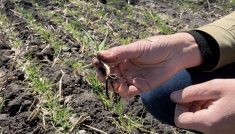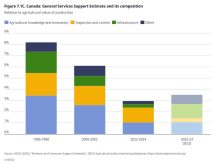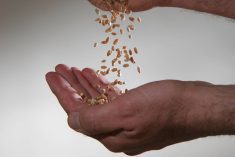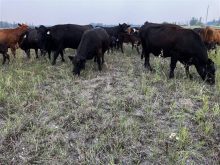The Canadian Foodgrains Bank says it’s pleased Canada has pledged to double the money it provides to developing countries for climate adaptation, which could include agricultural projects.
“We are confident this support will have a tremendous impact on the lives of millions of people around the world, particularly small-scale farmers,” said CFGB executive director Andy Harrington in a July newsletter.
Prime Minister Justin Trudeau announced that Canada would increase its funding for climate finance to $5.3 billion over the next five years during the G7 Leaders’ Summit in mid-June.
Read Also

KAP flags risky trade for Manitoba farmers
Tariffs, market access uncertainty, trade diversification and export infrastructure top the agenda at Keystone Agricultural Producers (KAP) annual meeting.
The announcement came after years of advocacy work, the Foodgrains bank said. People in the organization’s network have sent more than 25,000 postcards to members of parliament, met with government officials, written letters and spoken with officials through social media, the organization said.
Because the long-awaited funding boost wasn’t included in Canada’s 2021 budget, it’s not locked in however, said Paul Hagerman the CFGB’s director of public policy.
If there is an election and another party takes power, that party may not follow through.
“We’re talking with the opposition parties, encouraging them to commit to keeping this commitment if they come to power,” said Hagerman.
Prime Minister Trudeau promised that a higher percentage of these funds would go to grants rather than loans and more toward adaptation, Hagerman said. This fell in line with what NGOs were asking for.
In May the Co-operator reported on a panel discussion in which Hagerman was a participant. He told the audience it’s not uncommon for the Canadian Foodgrains Bank to pitch programs to Global Affairs Canada only to be told “That is a great project. We would love to do that, but we don’t have money.”
Another panel member, Nicolas Moyer of Cooperation Canada, said Canada does less than its fair share in international aid and development. Its official development assistance (ODA) as a share of its economy is at its lowest point in 50 years, he said.
Canada belongs to the Organization for Economic Co-operation and Development (OECD) — a ‘club’ of wealthy nations that work together to address social, economic and environmental challenges. The OECD expects member nations to contribute 0.7 per cent of their gross national income, Hagerman told the Co-operator in May. Only a few countries hit that target. Canada gives about 0.27 per cent of its gross national income, which is below the average of OECD countries, he said.
If carried out, Trudeau’s G7 pledge would bring Canada much closer to that 0.7 per cent.















